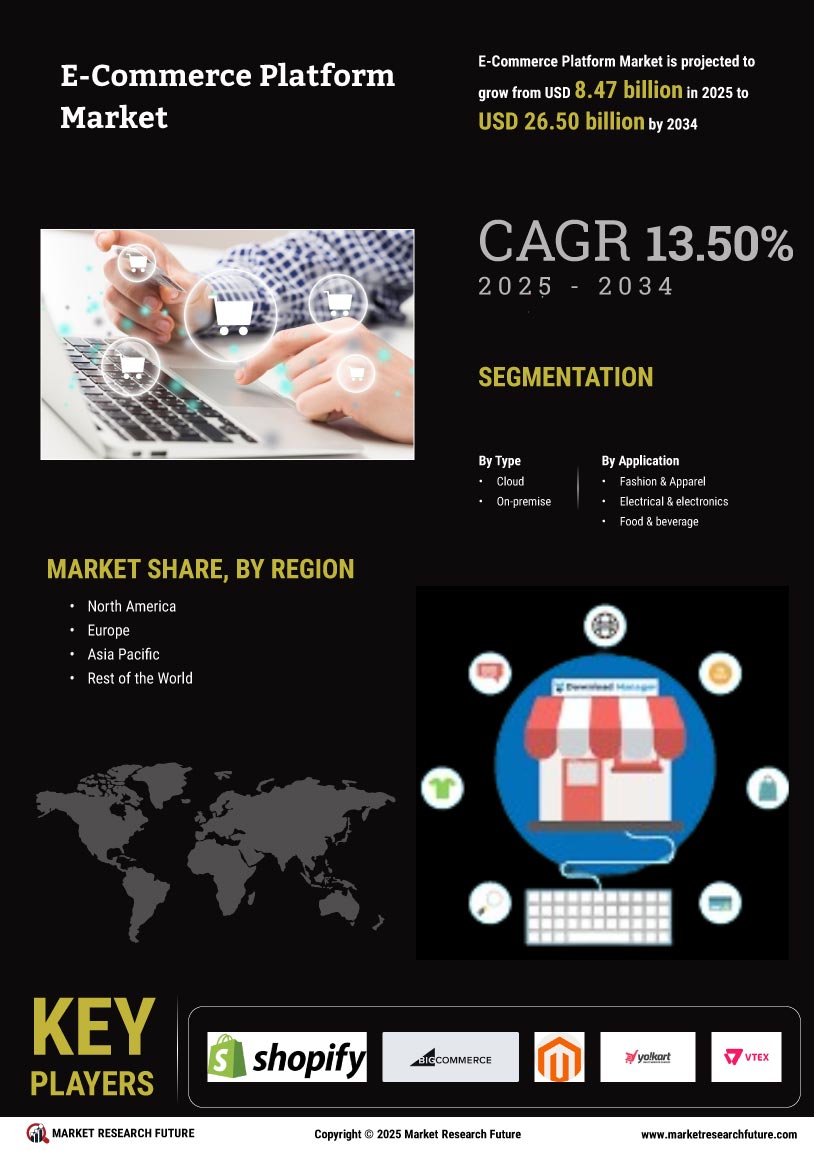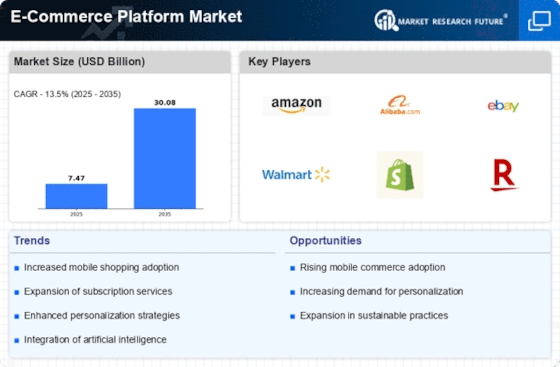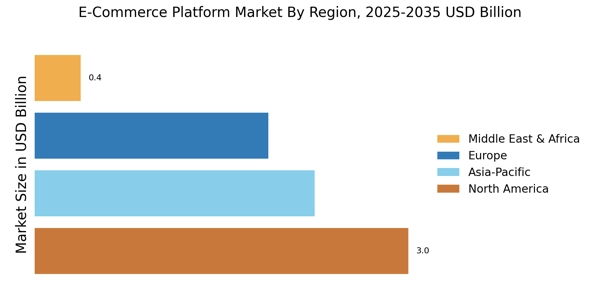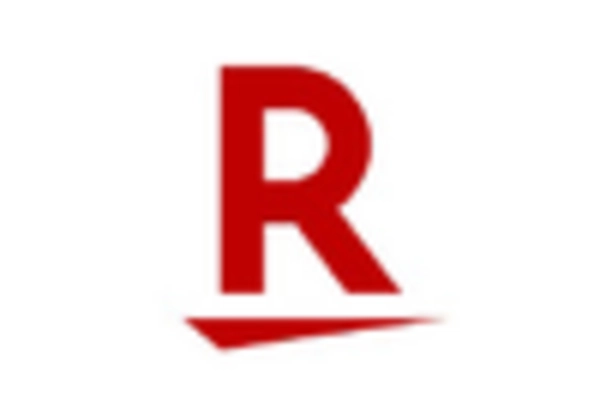Emergence of Omnichannel Retailing
The emergence of omnichannel retailing is a crucial driver for the E-Commerce Platform Market. This approach allows consumers to interact with brands across multiple channels, including online, mobile, and physical stores. Data indicates that businesses adopting an omnichannel strategy experience higher customer retention rates and increased sales. As consumers seek seamless shopping experiences, e-commerce platforms are compelled to integrate their online and offline operations. This integration not only enhances customer satisfaction but also provides valuable insights into consumer behavior, enabling platforms to tailor their offerings more effectively. The trend towards omnichannel retailing is likely to continue, as it aligns with consumer expectations for convenience and flexibility in their shopping experiences.
Expansion of Internet Accessibility
The expansion of internet accessibility is a pivotal driver for the E-Commerce Platform Market. As more individuals gain access to the internet, particularly in developing regions, the potential customer base for e-commerce platforms continues to grow. According to recent data, internet penetration rates have increased significantly, with estimates suggesting that over 60% of the population in many countries now has online access. This surge in connectivity enables consumers to engage with e-commerce platforms, thereby driving sales and market growth. Furthermore, the proliferation of affordable smartphones has facilitated this trend, allowing users to shop online with ease. As a result, e-commerce platforms are likely to see an influx of new users, which could lead to increased competition and innovation within the industry.
Adoption of Advanced Payment Solutions
The adoption of advanced payment solutions is transforming the E-Commerce Platform Market. With the rise of digital wallets, cryptocurrencies, and buy-now-pay-later services, consumers are presented with a plethora of payment options that enhance their shopping experience. Data indicates that nearly 40% of online shoppers prefer using digital wallets due to their convenience and security features. This shift in payment preferences is compelling e-commerce platforms to integrate these solutions to cater to consumer demands. Moreover, the ability to offer multiple payment methods can significantly reduce cart abandonment rates, which have been a persistent challenge in the industry. As e-commerce platforms continue to innovate their payment systems, they are likely to attract a broader audience, thereby fostering growth in the market.
Integration of Social Media and E-Commerce
The integration of social media and e-commerce is reshaping the E-Commerce Platform Market. Social media platforms are increasingly becoming vital channels for product discovery and customer engagement. Data suggests that a significant portion of consumers utilizes social media to research products before making a purchase, indicating a shift in how consumers interact with brands. This trend has prompted e-commerce platforms to leverage social media marketing strategies, including influencer partnerships and targeted advertising, to reach potential customers. As social commerce continues to gain traction, e-commerce platforms that effectively integrate these channels are likely to enhance their visibility and sales. This convergence of social media and e-commerce not only broadens the reach of platforms but also fosters a more interactive shopping experience for consumers.
Increasing Consumer Preference for Online Shopping
The increasing consumer preference for online shopping is a fundamental driver of the E-Commerce Platform Market. Recent surveys reveal that a substantial percentage of consumers now favor online shopping over traditional retail, citing convenience, variety, and competitive pricing as key factors. This shift in consumer behavior has led to a remarkable increase in online sales, with estimates suggesting that e-commerce sales could reach trillions of dollars in the coming years. As consumers become more accustomed to the ease of purchasing goods and services online, e-commerce platforms are likely to experience sustained growth. Additionally, the rise of subscription services and personalized shopping experiences further enhances consumer engagement, making online shopping an attractive option for many.


















